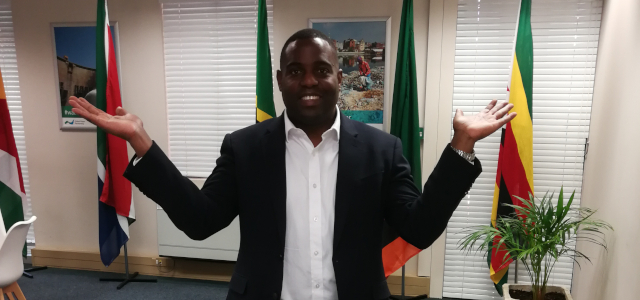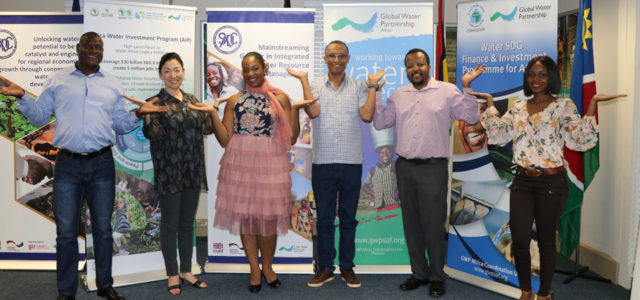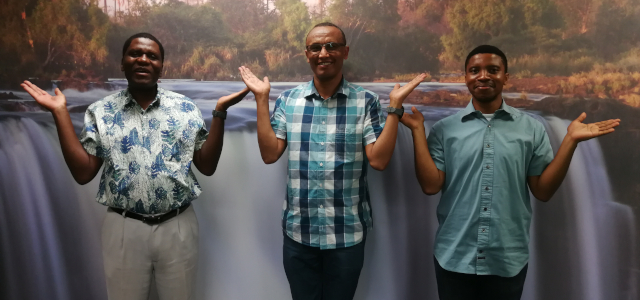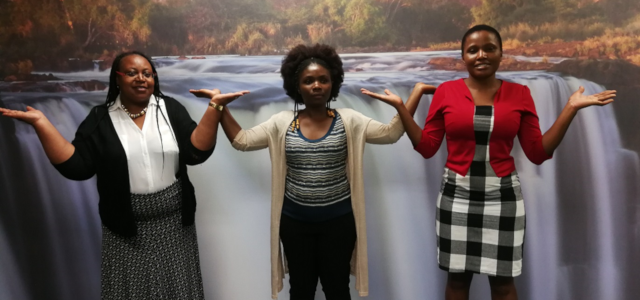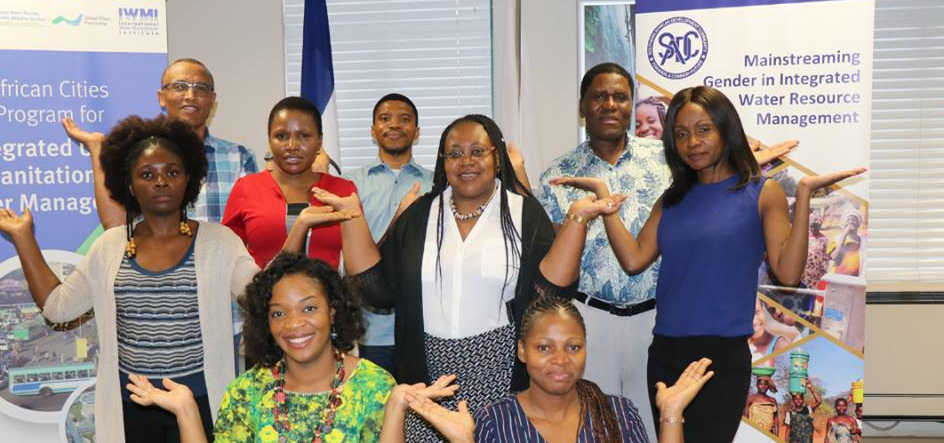“We at GWP have a principle: ‘Never about them without them.’ There is no water decision that is not about women. No water decision should be taken without women,” says GWP’s Executive Secretary Monika Weber-Fahr.
From International Women’s Day (8 March) to World Water Day (22 March), GWP will highlight the need for inclusion when it comes to water management, in keeping with the UN-Water World Water Day theme of ‘leave no one behind.’ “Marginalised groups – women, children, refugees, indigenous peoples, disabled people and many others – are often overlooked, and sometimes face discrimination, as they try to access and manage the safe water they need,” notes UN-Water.
GWP is a global action network with over 3,000 Partner organisations, 13 Regional Water Partnerships and over 60 Country Water Partnerships. GWP launched its Gender Strategy in 2014, and in 2017, GWP and Partners introduced an Action Piece to take gender equality from theory to practice.
“Water is a women's topic. And that's not only because millions of women spend many hours every day collecting water and bringing water home and using it for washing, cooking, or using water when the health and education of their children is at stake, or when they need it for building their businesses,” says Weber-Fahr. “It's also a women's topic because how we manage water is part of a decision that is critical for our future. Women in many places and decision-making situations have often been known to take a better and a more holistic view of things; a view that integrates and brings different perspectives to the fore.”
Regional gender update
GWPSA, along with our partners, are dedicated towards strengthening gender mainstreaming in the water sector as part of implementing priority intervention P3.1 in the RSAP IV on IWRM in line with the SADC Gender Policy and the SADC Protocol on Gender and Development.
This work also builds upon the Gender Mainstreaming project supported under the SADC-GIZ TWM Programme during the implementation of RSAP III. In Phase III of the SADC Water programme, a project to increase awareness and strengthen capacities for gender mainstreaming in the SADC water sector was implemented. The main outputs of the projects include:
• Development of awareness and training materials;
• All SADC MS appointed Gender Focal Points (GFP);
• Training of GFP on water and reporting issues at regional level
• The GFP were subsequently trained to implement gender sensitive water programmes.
• In 2015, the SADC WD established the Community of Practice of Gender Focal Points (GFP).
Supporting global campaign
To mark IWD 2019, GWP is joining the global campaign #BalanceforBetter, which is all about building a gender-balanced world, with the theme #BalanceforBetter in water management. Voices throughout the GWP Network will be featured on GWP’s website and social media channels from 4-11 March.
International Women’s Day’s #BalanceforBetter campaign runs all year long and doesn’t end after 8 March – and everybody can join; find out more on the dedicated website.
GWP supports the campaign by collecting photos and messages from its regions and Partners – groups of people as well as individuals – all striking a pose for gender balance in the water sector. The photos will be collected in a new Instagram account and featured on GWP's Facebook and Twitter channels, and uploaded as they come in. We invite everybody to join GWP’s efforts for the campaign, by sharing a photo on your social media channel/s with the hashtag #BalanceforBetter and tagging @GWPnews and @GWPSAF (Twitter) gwp_water (Instagram) and globalwaterpartnership (Facebook).
“In our work plan for the coming five years we will have targets for engaging women, specifically in the programmes that we do, making sure there is equal access to decision-making and benefits. Equal access to the water sector is an important target for us and for our work and for the teams and partners that we work with”, says Weber-Fahr.
